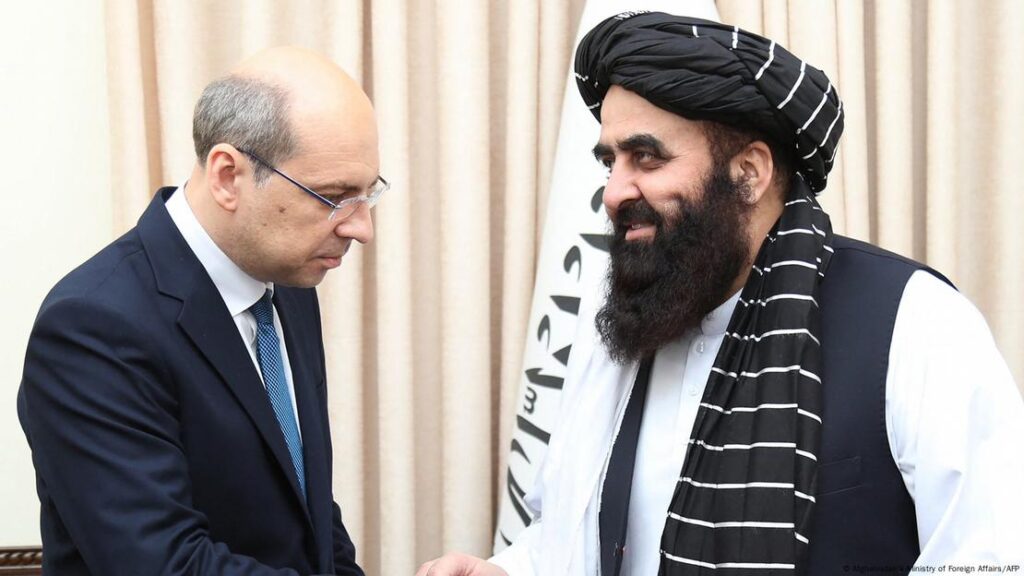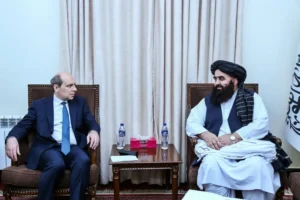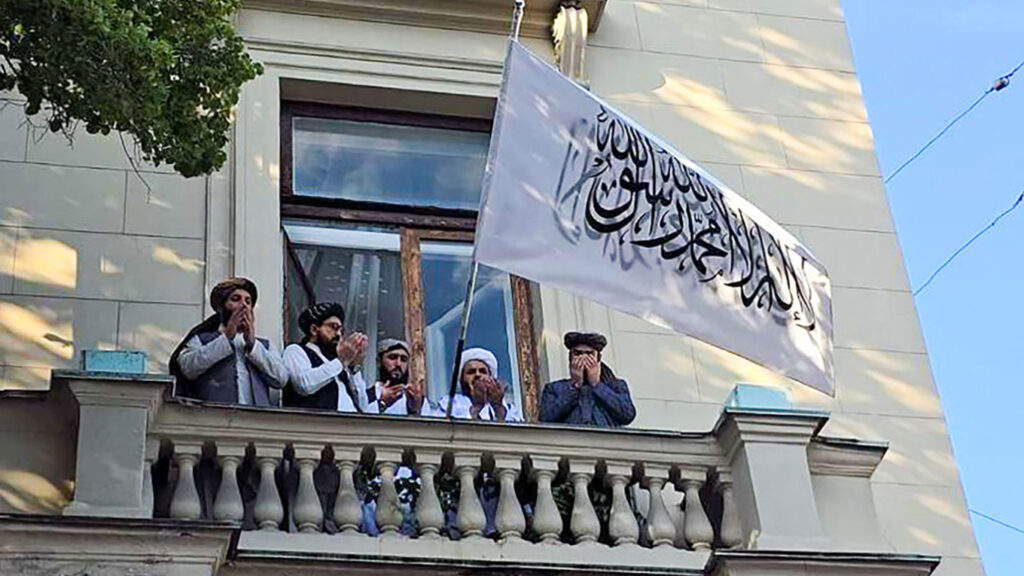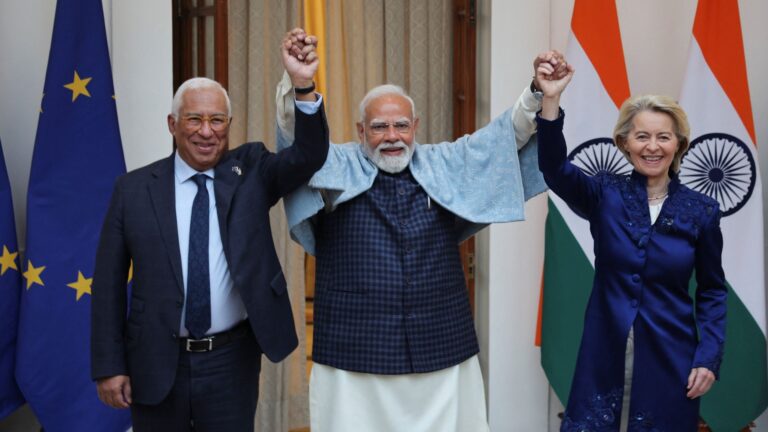
A recent video making rounds online shows American tourists posing cheerfully in Afghanistan, some even giving a thumbs-up, surrounded by Taliban fighters, tanks, and weapons. But this isn’t your average travel vlog. It’s part of the Taliban’s latest propaganda campaign: an attempt to promote “Taliban-style tourism,” where armed control is disguised as cultural hospitality. This bizarre mix of hostage optics and vacation aesthetics reflects a desperate attempt to rebrand their regime on the global stage.
And now, just as the Taliban pushes for visibility and acceptance, they have found their first official global backer — Russia.
Russia Breaks the Freeze on Taliban

On July 3, 2025, Russia became the first country to officially recognize the Taliban as the legitimate government of Afghanistan. While the rest of the world continues backchannel talks and humanitarian aid without diplomatic recognition, Russia has made its stance both official and public.
Moscow claims this is about “regional stability” and “counterterrorism cooperation.” The reality is more complex. After the ISIS-K attack in Moscow in 2024, Russia wants the Taliban on its side not just symbolically, but operationally. Intelligence sharing, security coordination, and mutual enemy mapping are now in play.
Oil, Wheat, and What Lies Beneath
This is not a goodwill gesture. It is a transaction and there have been many:
- Fuel and Grain: Russia had already signed agreements to supply oil, gas, and wheat to Afghanistan, even before recognition. Now, those deals will be expanded through official state channels.
- Minerals and Infrastructure: Afghanistan sits on vast, largely untapped mineral resources. Russian companies now have the green light to move in digging, drilling, and building, especially as Moscow seeks to circumvent Western sanctions.
Meanwhile, countries like India maintain a careful middle ground sending humanitarian aid via the UN, engaging through “technical teams,” and keeping their distance from formal recognition. India is involved, but not committed. Russia, in contrast, has decided to go all in.
A Dangerous Precedent?

The Taliban has called Russia’s move a “courageous step” and is urging others such as Iran, China, and Pakistan to follow suit. Recognition brings trade, legitimacy, and the possibility of a seat at future global summits.
Imagine this: The same Taliban that bans girls from schools could soon be participating in multilateral dialogues on regional development.
Rights groups and Western governments warn that recognizing these regimes risks legitimizing authoritarian rule without ensuring accountability. As Russia forges ahead, isolation strategies built on conditional recognition and sanctions may begin to unravel.
For the Taliban, this is about more than diplomacy, it is an attempt to rewrite their place in the international system while holding on to their core beliefs. Russia, meanwhile, is seeking to reshape the rules of global engagement at a time when shared moral standards are fading.
As these dynamics play out, the traditional approach of isolating regimes may lose its impact, setting a precedent that other countries could quietly choose to follow.
The Bigger Shift
As more nations prioritize interests over ideals, the global rules of engagement seem to be shifting.
Is the world entering a new era where strategy matters more than values? And where regimes like the Taliban get a seat at the table without changing their ways?
For more such informative articles, check out The World times.



